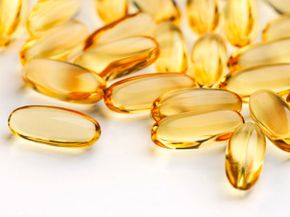What do beef hearts have to do with something that could potentially be used to treat cancer, AIDS, hypertension, high cholesterol, diabetes, Alzheimer's, Parkinson's and asthma -- and the list goes on? In 1957, Dr. Frederick Crane used the mitochondria from the cells of beef hearts to locate Coenzyme Q10, or CoQ10 [source: Langsjoen]. CoQ10 is actually located within our own human mitochondria as well [source: Stocker].
CoQ10 is most present in the energy-making areas of our body, and much more present in beef hearts than our bodies. According to the Merriam-Webster's Medical Desk Dictionary, CoQ10 is a "ubiquinone of humans and most other mammals that has a side chain with ten isoprenoid units and possesses antioxidant properties." OK, unless you're a biochemist or you just have a knack for biochemistry the only part of that definition that sounded familiar is that CoQ10 has antioxidant properties. And you know that antioxidants are beneficial. Reportedly, CoQ10 has numerous benefits with few side effects, and has been suggested to treat not only the ailments listed above, but a host of other diseases as well. But how well does it really work? And if it's so great, how come you most likely haven't heard of it before?
Advertisement
CoQ10 has some great promise for treating certain ailments, but for the most part, more research is needed to know conclusively whether CoQ10 supplements really work. This article will explore some of the research that has been done and what the early conclusions are on some of the many potential utilizations of CoQ10. In particular, you'll learn how CoQ10 can affect gum disease, blood pressure and your skin's health, while exploring its potential side effects. As with any supplement, no matter how minor it may seem, be sure to discuss any treatment with your doctor before beginning a CoQ10 regimen. Because there are so many potential uses, you can't be too careful when discussing how the potential side effects might affect you.
Continue reading to learn how Coenzyme Q10 works within your own body, as well as where it resides.
Advertisement

